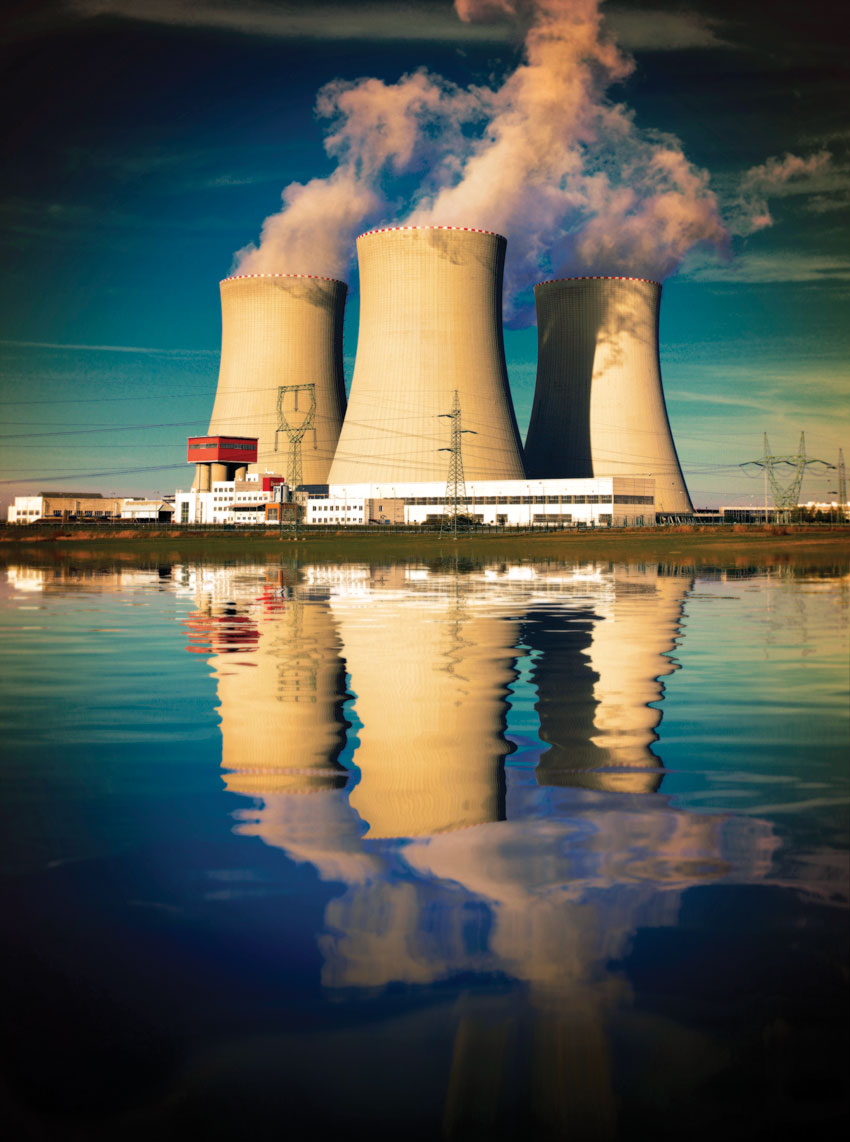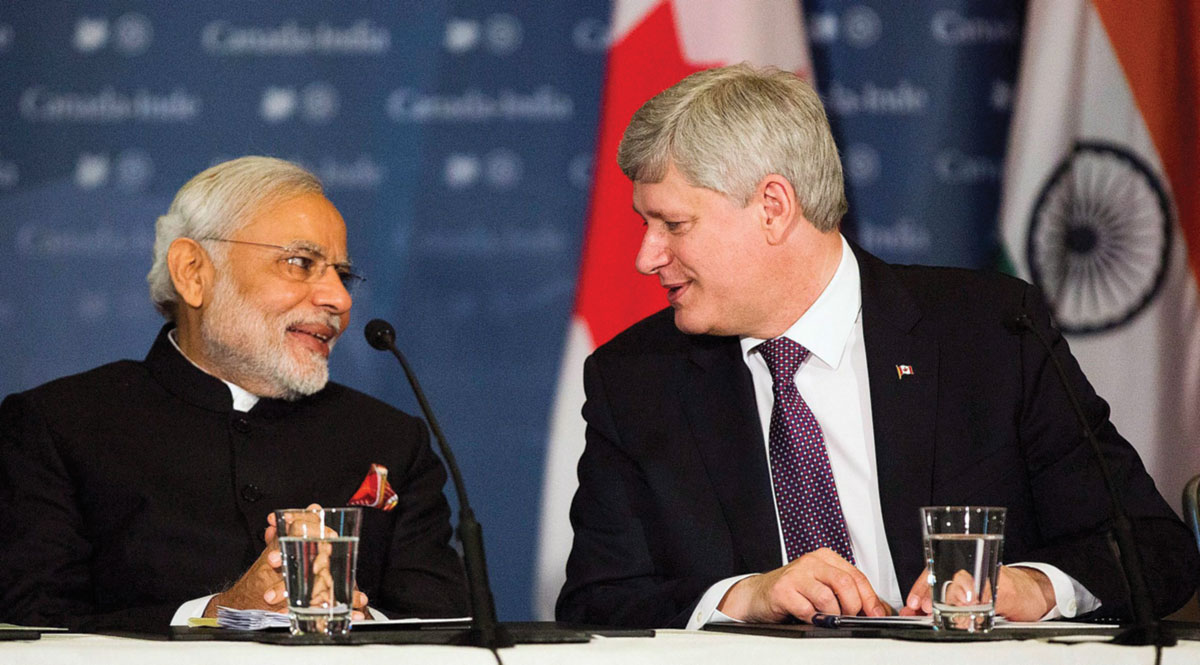FROM U.S. TO CANADA AND FRANCE
Indian Prime Minister Narendra Modi with his Canadian counterpart Stephen Harper, at a business roundtable in Toronto, Apr. 16.
Prime Minister Narendra Modi recently visited France and Canada. While strategic, business and defense deals were on the agenda, the focus was also on pushing forward India’s atomic energy plans. As electricity for all Indians was a cornerstone of his electoral campaign, Modi has ensured that energy security remains in the forefront of talks and negotiations during overseas tours, whether America, Australia or Japan, writes Siddharth Srivastava.
During Modi’s visit to France last month, the two countries signed agreements to fast-track the stalled and long-delayed 9,900 MW Jaitapur Nuclear Power Project (JNPP) to be built by Areva in Maharashtra. The deals are aimed at sorting out differences over price of electricity to be generated due to which the project has not made any headway. An agreement between private entity Larsen and Toubro (L&T) and Areva was signed to increase localization and reduce cost, thus enhancing the financial viability of JNPP.
The deal creates possibilities of nuclear manufacturing in India. A pact related to pre-engineering agreements was also inked between the state-owned Nuclear Power Corporation of India Limited (NPCIL) and Areva for studies aimed at bringing clarity on technical aspects of the plant. “In Jaitapur, we have made progress on setting up six nuclear power projects. We have signed an agreement on reducing cost of power production and more technical support and further study,” Modi said.
“Areva and L&T have signed an agreement for making forgings in India. This is a perfect example of ‘Make in India’ taking India to new place in advance technology,” he added.
Upon completion, JNPP will generate maximum electricity among all of the NPP’s in India. With Maharashtra presently governed by the ruling Bharatiya Janata Party (BJP), the political climate is conducive for construction of JNPP. India’s nuclear liability law, which has been viewed as a big hurdle by overseas suppliers, is also now less of a problem area following an understanding reached between India and the U.S. New Delhi has committed to creation of a nuclear insurance pool to indemnify equipment makers in the event of a mishap. India and France signed a civil nuclear agreement in 2008 under which NPCIL, with help of Areva, was to construct six reactors of 1650 MW each at Jaitapur.
In 2009, NPCIL and L&T formed a JV company to produce special steels and ultra heavy forgings. Price of power was, however, a major impediment. The cost of the electricity generated by Russia-backed Kudankulam Nuclear Power Project in Tamil Nadu is between Rs. 3 to Rs. 3.50 per unit. For JNPP, it is estimated over Rs. 9 per unit. New Delhi has been negotiating for Rs. 6 to Rs. 6.50 per unit.

Modi in Canada
From France, Modi headed to Canada, where a fuel supply deal was signed with the country’s biggest uranium producer Cameco that considers India the second fastest growing market for nuclear fuel. Under the agreement valued $280 million, Cameco will supply over 3.2 million kilos of uranium concentrate to India over the next five years. The deal formally ends a decades long dispute that began after India was blamed for using Canadian technology to develop a nuclear bomb in the 1970s.
“Canada is providing uranium to India as a mark of its trust and confidence in India,” Modi said. “The agreement really allowed us to turn the page on what had been in our judgment an unnecessarily frosty relationship for far too long,” Canadian Prime Minister Stephen Harper told news reporters.
India currently operates 20, mostly small reactors with capacity of 4780 MW, or 2% of the country’s total power capacity. The aim is to increase atomic capacity to 63,000 MW by 2032 by adding nearly 30 reactors that is also a massive business opportunity.
In January this year, Prime Minister Modi and U.S. President Barack Obama ended a six-year-old deadlock over operationalizing the landmark civil nuclear deal signed between India and America in 2008. The agreement inked following a three-hour meeting between the two leaders in New Delhi has put in place a template to be followed by other countries keen to engage with India’s nuclear sector.
“I am pleased that six years after we signed our bilateral agreement, we are moving towards commercial cooperation, consistent with our laws and international legal obligations,” Modi said. Addressing reporters, Obama said there had been “breakthrough on two issues that were holding up our ability to advance our civil nuclear cooperation,” and the two countries were “committed to moving towards full implementation.”
The nuclear deals with America and now France and Canada are a clear signal that atomic power continues to be a crucial cog in the Modi government’s strategy to progress towards India’s self-reliance in energy. Over the recent past, doubts were expressed that Modi may jettison India’s ambitious nuclear plans, that were set in motion by previous Prime Minister Manmohan Singh, in favor of renewable and thermal power. This has been ruled out.


